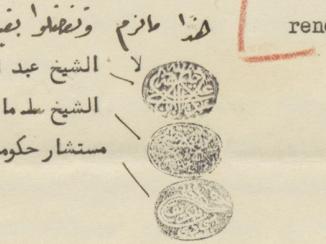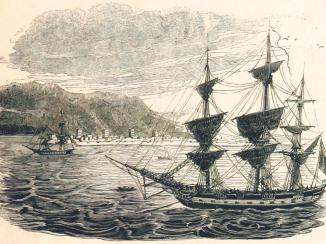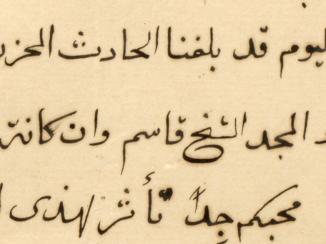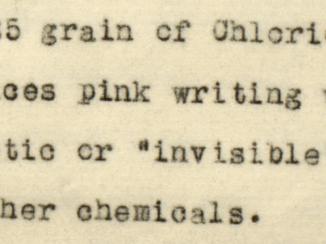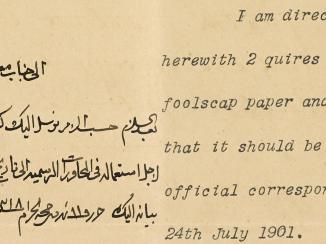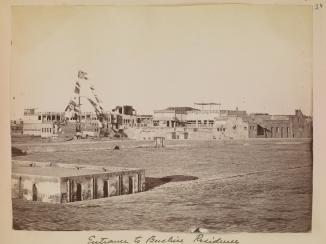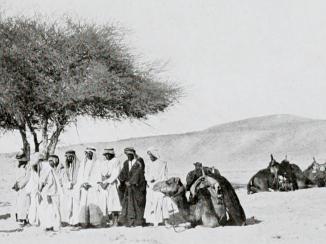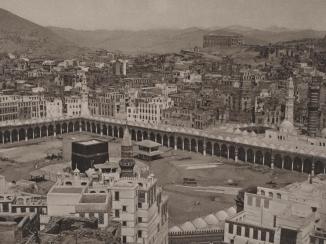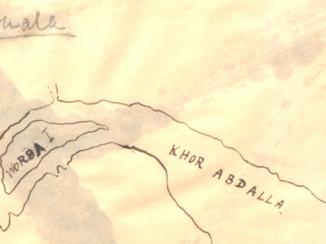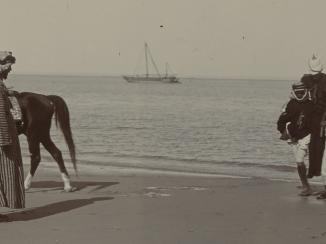Overview
On the morning of Sunday 8 February 1914, John Gordon Lorimer, the officiating British Resident in the Persian Gulf The historical term used to describe the body of water between the Arabian Peninsula and Iran. at Bushire, retired to his dressing room to ascertain the exact calibre of his automatic pistol as he wished to order cartridges from Bombay. He was later found lying on the floor, dead, at the age of forty-three, from a self-inflicted gunshot wound.
According to a press communiqué reported in the Times of India newspaper, Lorimer, in examining his pistol, ‘had pulled the trigger and discharged a last cartridge which had been overlooked in the magazine’. The bullet entered his stomach, passing through the body, rupturing major blood vessels. Shock, in the opinion of the Residency An office of the East India Company and, later, of the British Raj, established in the provinces and regions considered part of, or under the influence of, British India. Surgeon, ‘must have caused immediate loss of consciousness […] and death speedily followed’.
Funeral at Bushire
The funeral took place on the following day at cemetery of Indo-European Telegraph Department at Bushire. The Times of India reported that the ‘sad event evoked a general display of sympathy on the part of British, Foreign and Persian residents of Bushire’.
The bier was drawn by the 102nd King Edward’s Own Grenadiers and bluejackets (British Navy sailors) from the cruisers Fox while pipers played The Flowers of the Forest and various dirges and buglers played the Last Post. The service was carried out by Reverend A. Flower, Royal Navy chaplain.
In addition to Lorimer’s wife, Marian Agnes, and members of the Residency An office of the East India Company and, later, of the British Raj, established in the provinces and regions considered part of, or under the influence of, British India. staff, those attending included the Governor of the Gulf Ports Province, the Persian Foreign Office Agent, and the head of the Imperial Bank of Persia, A large number of Armenian and Goanese residents, as well as the principal Persian merchants of Bushire, were also in attendance.
News Reaches Bahrain
Four days later, the S. S. Barala delivered news of the death to Major Arthur Prescott Trevor, the British Agent at Bahrain. In his diary, he records that ‘[t]he sudden and tragic news shocked everyone’. The Agency’s flag ‘was hoisted at half-mast’ and the office was closed ‘as a mark of respect to the deceased’ the following day. ‘Great sympathy was shown by all’ and Bahrain merchants and notables, including members of the Indian, Persian and Jewish communities, attended the Agency An office of the East India Company and, later, of the British Raj, headed by an agent. to express their condolences.
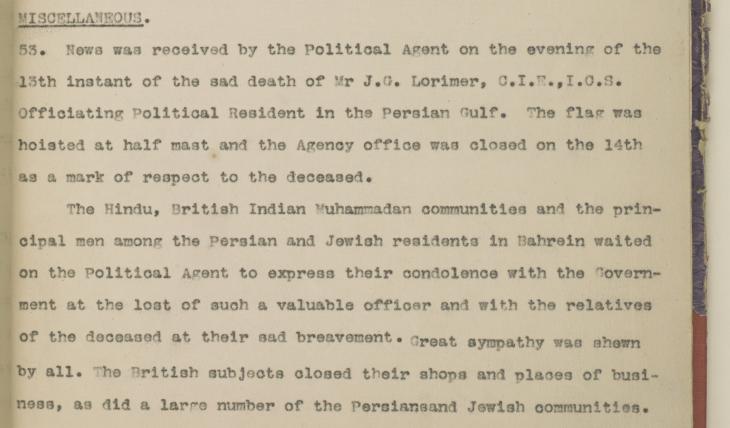
When the news reached the ruler of Bahrain, Shaikh ‘Isa bin ‘Ali Al Khalifah, who was residing at Muharraq, he ordered the lowering of flags at his residence and the Customs House. His son, Shaikh ‘Abdullah, proceeded to Manama to offer condolences, while Shaikh ‘Isa called in person some days later.
‘Lorimer’
The event was reported as a ‘Persian Gulf Tragedy’. Newspapers in Britain and India mentioned Lorimer’s education at Edinburgh and Oxford and extolled his accomplishments in the Indian Civil Service. He was eulogised as ‘one of the ablest officers of the Foreign Office’ and having ‘scores of friends in official circles’.
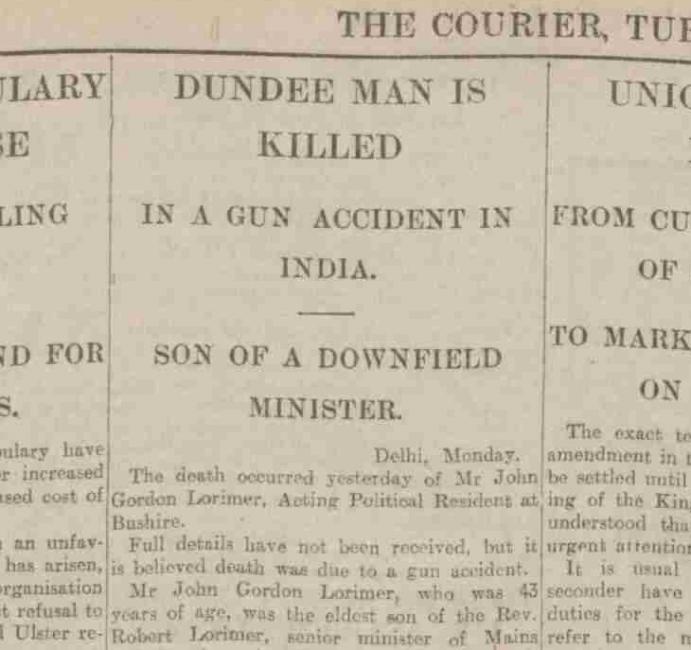
One detail is conspicuously absent from these tributes, namely his monumental Gazetteer of the Persian Gulf The historical term used to describe the body of water between the Arabian Peninsula and Iran. , Oman and Central Arabia: an encyclopaedic two-volume work of colonial intelligence surveying the history and geography of the region. Although obituaries make mention of his other publications – Customary Law of the Main Tribes in the Peshawar District (1899) and Grammar and Vocabulary of Waziri Pashto (1902) – it is the Gazetteer for which Lorimer is best-known today.
The reason for this absence is that the Gazetteer was a top secret document, only available for official use, until it was declassified in 1955 under the fifty-year rule. Only allusions could be made to this work, for example: ‘He some years ago acquired a special knowledge of the Persian Gulf’ which was ‘of the greatest value to the Government whom he served’.
Lorimer died an untimely death with his contribution to the history of the Gulf obscured. However, today, his Gazetteer, which is now often simply referred to as ‘Lorimer’, is the unsurpassed go-to reference work for all researchers of the history of the Gulf.






